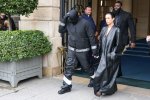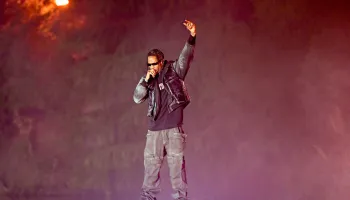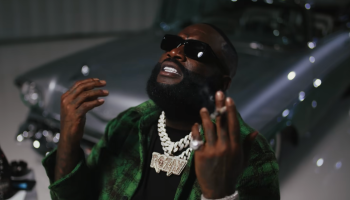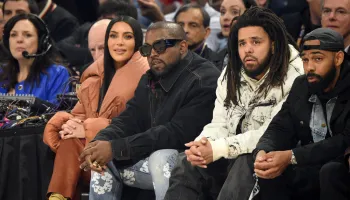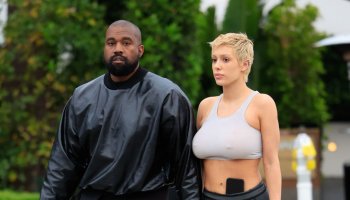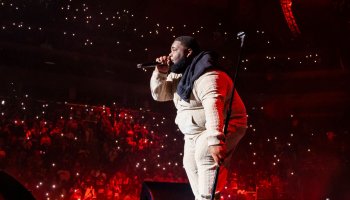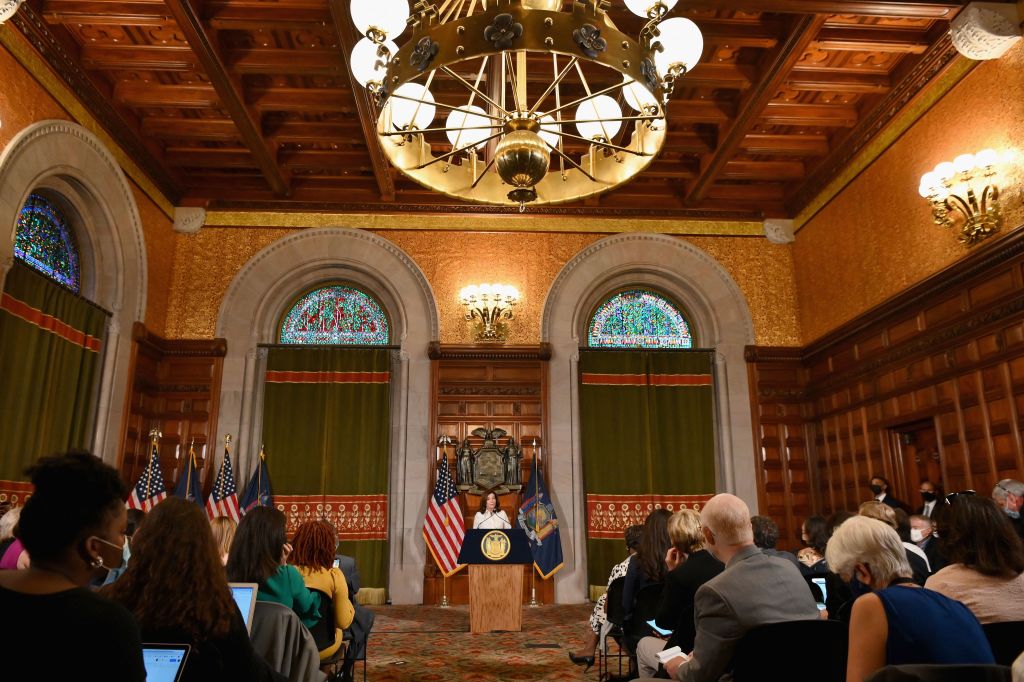
Source: ANGELA WEISS / Getty
A bill limiting rap lyrics being used in criminal trials against defendants in New York State is one step closer to becoming law thanks to the state’s senators.
On Tuesday (May 17th), the State Senate of New York approved Senate Bill S7527 which would limit the usage of song lyrics and other forms of “creative expression” by prosecutors as evidence in criminal cases. While the bill doesn’t outright ban prosecutors from presenting lyrics and other materials to juries, it does require that they show that the work is “literal, rather than figurative or fictional” and that “evidence of criminal conduct, not the provocative nature of their artistic works” is what defendants should be tried by.
Those tactics have long been seen as discriminatory towards Black people, treating rap music as literal statements instead of artistic expression. The bill, sponsored by Senators Brad Hoylman and Jamaal Bailey, was approved by a vote of 38-23. It now must pass the state assembly by a vote before it becomes law.
The bill’s approval by the State Senators was spurred by the involvement of some of Hip-Hop’s biggest names such as Jay-Z, Meek Mill, Killer Mike, and Fat Joe. In a letter sent to the State Senate in January urging the passage of SB7527, they wrote: “This tactic effectively denies rap music the status of art and, in the process, gives prosecutors a dangerous advantage in the courtroom: by presenting rap lyrics as rhymed confessions of illegal behavior, they are often able to obtain convictions even when other evidence is lacking,”
A companion bill sponsored by Assemblymember Catalina Cruz is waiting to be reviewed by a committee before a vote to ensure it has no disparities between it and the Senate bill.
The news comes as prosecutors in Atlanta unveiled a sweeping case against Young Thug and Gunna last week which relied heavily on their lyrics, compelling many observers to protest their tactics. “To weaponize these words by charging overt acts to support a supposed conspiracy is unconscionable and unconstitutional,”, said Young Thug’s attorney, Brian Steel at the time.






